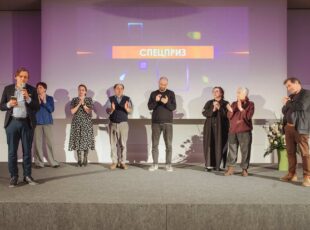Does Russia Belong in the G8?
 Next week the leaders of the G8 will be meeting in Northern Ireland for their annual summit, with some observers questioning whether Vladimir Putin’s Russia deserves its place among the exclusive club of democracies.
Next week the leaders of the G8 will be meeting in Northern Ireland for their annual summit, with some observers questioning whether Vladimir Putin’s Russia deserves its place among the exclusive club of democracies.
“We must rename the ‘G8’ to the ‘G7 plus Putin,” said Boris Nemtsov, the former deputy prime minister and veteran opposition leader, during a visit to Washington DC this week. “Russia is in the process of shifting from ‘sovereign democracy,’ which was based on imitations and manipulations, toward a much harsher, full-on repression.”
Nemtsov, who was speaking at the event “Seven Democrats and Putin: Human Rights in Russia Ahead of the G8 Summit” hosted by Institute for Modern Russia (IMR) and the Foreign Policy Initiative (FPI) on Capitol Hill, commented that Vladimir Putin is going through a process of “Lukashenko-ization,” referring to the hard-handed repression of Belarusian dictator Alexander Lukashenko.
Russia long ago lost its credentials to call itself an open and free democracy, Nemtsov argued, and its participation in these international platforms such as the G8 only further legitimize a leadership that has functioned mainly through the protection of corrupt individuals rather than the delivery of governance to Russian citizens.
Exposing corruption has been a strong focus for Nemtsov and the opposition movement. At the DC event, a translation of his recent study, “Winter Olympics in the Sub-Tropics: Corruption and Abuse in Sochi” was distributed highlighting theft of public resources on a massive scale. According to the paper, between 50-60% of the budget for the Olympics in Sochi, totaling $25-30 billion, is being embezzled by state officials and their partners in the private sector.
Nemtsov further highlighted the deteriorating conditions for civil society in Russia, pointing out Russia’s growing population of political prisoners. “There are even concerns that Mikhail Khodorkovksy, who has already faced 10 years in prison, may be hit with a third case. If they go forward with a third case, there would be massive capital flight and further emigration of our young educated class.”
While Nemtsov steadfastly insists that the restoration of freedom and democracy is a task for the Russian people themselves, he acknowledged that the Sergei Magnitsky Rule of Law Act passed by the U.S. Congress has been extraordinarily effective, and must be expanded to include more names of those who directly participate in the persecution of Russian opposition members.
“If American lawmakers want to protect human rights in Russia, the Magnitsky list should be expanded,” Nemtsov said. “The Magnitsky list contains only 18 names. This is good news, but only 18 names doesn’t change Russia. We need more.”
Nemtsov was visiting Washington DC this week to testify before the Senate Foreign Relations Committee.
The IMR/FPI event was moderated by Matthew Kaminski, an editorial board member of the Wall Street Journal, with opening remarks by Vladimir Kara-Murza of IMR, and closing remarks by Ellen Bork of FPI.



